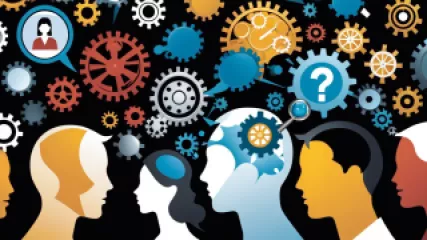How does confirmation bias influence decision-making in psychology?
Psychology is a fascinating field that explores the complexities of human behavior and cognition. One area of particular interest is decision-making, which plays a crucial role in our everyday lives. We constantly make decisions, ranging from simple choices like what to eat for breakfast to more significant ones like which job offer to accept. However, have you ever wondered why we sometimes make decisions that seem irrational or biased? This is where the concept of confirmation bias comes into play.
What is Confirmation Bias?
Confirmation bias is a cognitive bias that refers to the tendency of individuals to seek out and interpret information in a way that confirms their preexisting beliefs or hypotheses. In other words, people are more likely to pay attention to and remember information that supports their existing views, while disregarding or downplaying evidence that challenges them.
This cognitive bias can influence decision-making in various domains, including psychology. When individuals are influenced by confirmation bias, they tend to make judgments and decisions based on their preconceived notions rather than objectively evaluating all available evidence. This can have significant implications for how decisions are made, both on an individual level and within organizations.
Confirmation Bias in Decision-Making
Confirmation bias can have a profound impact on decision-making processes. When individuals are affected by this bias, they may:
- Focus on information that aligns with their existing beliefs, while ignoring contradictory evidence
- Seek out sources and individuals who share their views, creating an echo chamber effect
- Interpret ambiguous information in a way that supports their initial assumptions
- Dismiss alternative viewpoints without giving them fair consideration
- Overestimate the accuracy of their own judgments and ignore potential errors
These tendencies can lead to flawed decision-making, as individuals may fail to consider all relevant information and perspectives. This can result in suboptimal outcomes, both for individuals and organizations.
Examples of Confirmation Bias in Psychology
Confirmation bias has been observed in various areas of psychology, influencing decision-making processes and distorting the interpretation of research findings. Let's explore a few examples:
1. Research Bias
Confirmation bias can affect researchers when designing or interpreting studies. For instance, researchers might unintentionally select participants or methodologies that support their hypotheses, leading to biased results. Additionally, they might interpret ambiguous findings in a way that aligns with their preconceived notions, potentially overlooking alternative explanations.
2. Clinical Diagnosis
In clinical psychology, confirmation bias can impact the diagnostic process. Mental health professionals might unconsciously seek out information that confirms their initial diagnosis while neglecting contradictory evidence. This can result in misdiagnoses and inappropriate treatment plans.
3. Jury Decision-Making
Confirmation bias can also influence jury decision-making during legal proceedings. Jurors may selectively focus on evidence that supports their initial beliefs about a defendant's guilt or innocence, disregarding contradictory information. This bias can have serious consequences, affecting the fairness of the judicial system.
Addressing Confirmation Bias in Decision-Making
Recognizing and addressing confirmation bias is essential for improving decision-making processes. Here are some strategies that can help mitigate the influence of confirmation bias:
- Awareness and self-reflection: Individuals should reflect on their own biases and be open to considering alternative viewpoints.
- Seek diverse perspectives: Actively seek out information and opinions that challenge your existing beliefs. Engage in discussions with people who have different perspectives.
- Encourage dissenting voices: Create an environment where individuals feel comfortable expressing alternative viewpoints without fear of retribution.
- Implement decision-making frameworks: Utilize decision-making frameworks that encourage a systematic evaluation of evidence and reduce the impact of biases.
- Consult experts: Seek input from individuals with expertise in the relevant domain to gain a more comprehensive understanding of the topic.
The Importance of Overcoming Confirmation Bias
Overcoming confirmation bias is crucial for making well-informed decisions in various aspects of life, including personal relationships, business, and policymaking. By actively challenging our preconceived notions and considering diverse perspectives, we can enhance our judgment and decision-making abilities.
Ultimately, understanding the influence of confirmation bias on decision-making in psychology allows us to examine our own biases and strive for more objective and rational choices. By doing so, we can make better decisions that lead to more favorable outcomes, both for ourselves and society as a whole.
This article was written with input from Cesar Campbell, a renowned psychologist specializing in behavioral economics and decision-making in business.






